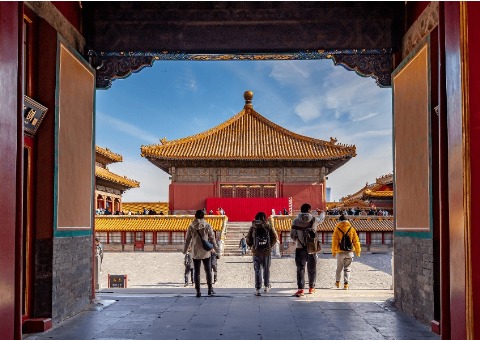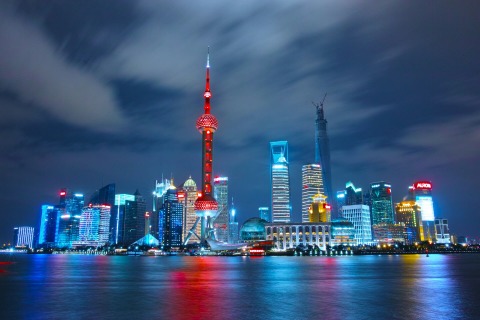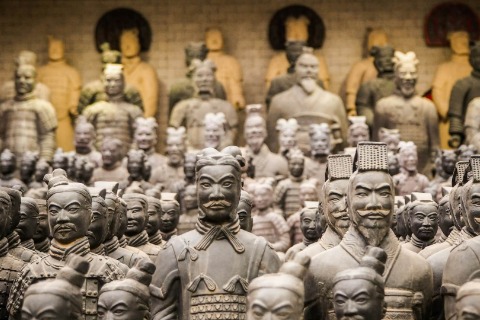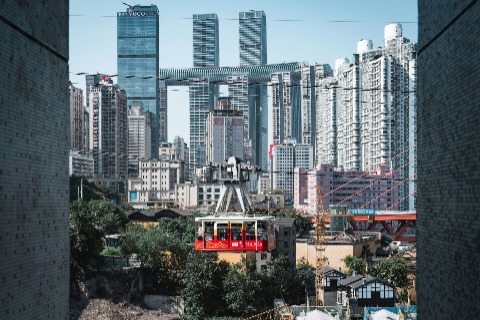Peak & Off-Peak Seasons: When to Travel to China
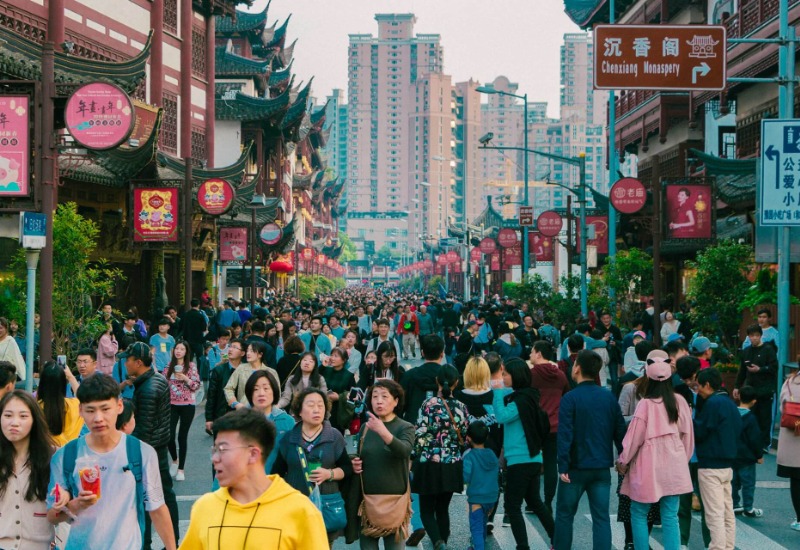
What issues will you face if you don't pick the right time for your trip to China?
If your travel dates fall during a Chinese holiday, you’ll find that:
- Tourist attractions and transportation hubs are usually very crowded, often resulting in heavy traffic.
- Attractions see a massive influx of visitors during holidays, making it feel like you’ve never seen so many people before. The large crowds lead to long wait times, and some attractions may temporarily close once they reach capacity, preventing you from entering. You’ll also face long lines at restaurants around these attractions.
- Booking hotels and tickets becomes difficult and expensive. If you plan to travel during Chinese holidays, it’s best to book your hotel at least a month in advance and your attraction tickets seven days ahead; otherwise, you may not find availability.
In short, to have a pleasant travel experience, avoid visiting China during its holiday periods.
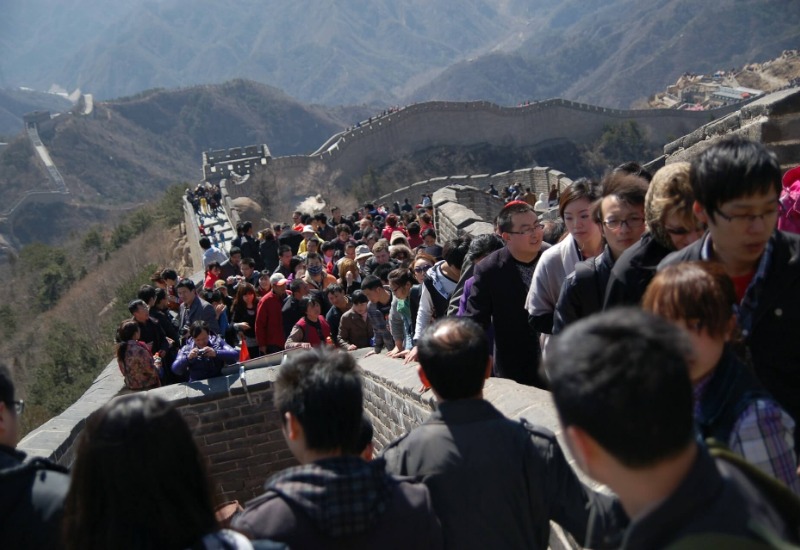
What issues will you face if you don't pick the right time for your trip to China?
National Day (October 1-7)
National Day is China’s longest holiday, lasting seven days. In 2024, around 765 million people will travel domestically during this time. Almost every popular attraction will be overwhelmed with crowds. Places like Hongya Cave in Chongqing, the Great Wall in Beijing, and the Terracotta Army in Xi’an will be packed.
Make sure not to visit China during National Day, or you’ll find yourself stuck in traffic for hours. Once you reach an attraction, you may wait in line for hours and discover that it’s filled with tourists, turning the crowd into your main “attraction.”
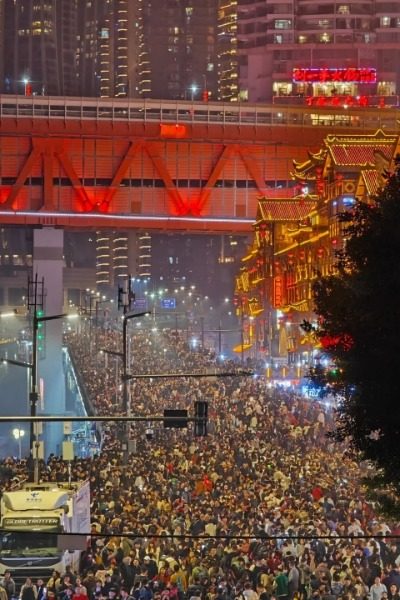
Labor Day (May 1-5)
Labor Day is the longest holiday in the first half of the year, and it’s just as crowded as National Day. Many Chinese people choose to travel during this time to relax. Although the holiday lasts only five days, it still attracts a large number of tourists.
Just like during National Day, popular cities like Beijing, Chongqing, Shanghai, Chengdu, and Changsha will see exceptionally crowded attractions. The Forbidden City, Great Wall, and Tiananmen Square in Beijing will be packed. The Forbidden City requires reservations and has long wait times, while the Great Wall can be so crowded that climbing becomes difficult.
In Chongqing, Hongya Cave will be overrun with people, and the lines for the Yangtze River Cableway and boat tours will be very long. The scenery is beautiful, but the experience is less enjoyable. In Shanghai, attractions like the Bund, Nanjing Road, and Sinan Road will also be crowded, with wait times starting at three hours.
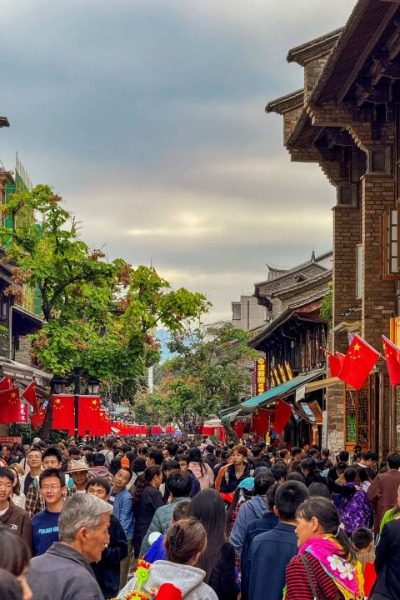
Mid-Autumn Festival
The Mid-Autumn Festival is a traditional Chinese holiday that symbolizes family reunions, dating back to ancient times. Families gather to share mooncakes and other foods. During this festival, many people return home to visit relatives, while others go on short trips, often to nearby areas.
Throughout the holiday, various cultural activities take place across China, such as lantern festivals, fire dragon dances, and moon worship, creating a festive atmosphere that attracts many tourists. Popular destinations include Beijing, Chengdu, Shanghai, Chongqing, Xi’an, and Sanya. These places see large crowds during the Mid-Autumn Festival, leading to severe congestion at attractions and transportation.
For example, the Badaling Great Wall in Beijing, the Great Tang All Day Mall in Xi’an, the Singing Sand Dunes in Dunhuang, and Ciqikou in Chongqing will be very crowded.
The Mid-Autumn Festival date follows the lunar calendar: it falls on October 6, 2025; September 25, 2026; September 15, 2027; October 3, 2028; September 22, 2029; and September 12, 2030.
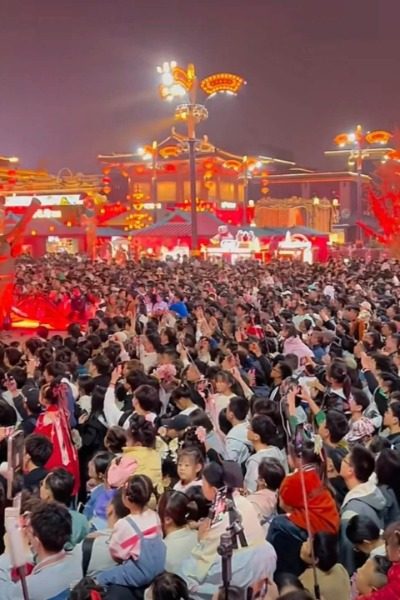
Qingming Festival (April 4)
Qingming Festival is a traditional holiday for honoring ancestors and visiting graves, but many people also choose to travel during this time. The number of travelers during Qingming is significant, with short trips being particularly popular.
Although the holiday lasts only three days, major attractions across China will be extremely crowded, making for a busy travel experience.
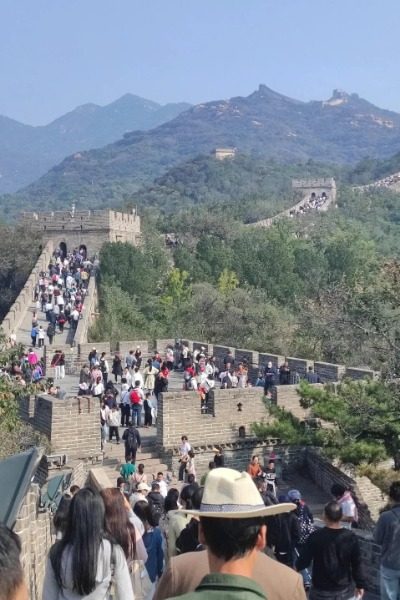
Spring Festival
The Spring Festival is the most important traditional holiday in China, comparable to Christmas in the West. The demand for family reunions and visiting friends leads to a significant increase in travel during this time.
Train ticket bookings are at their highest throughout the year during the Spring Festival. If you visit China during this period, you’ll likely find it nearly impossible to purchase train tickets, and highways will experience heavy traffic jams.
The dates for the Spring Festival follow the lunar calendar: January 29, 2025; February 17, 2026; February 16, 2027; January 26, 2028; February 13, 2029; and February 3, 2030.
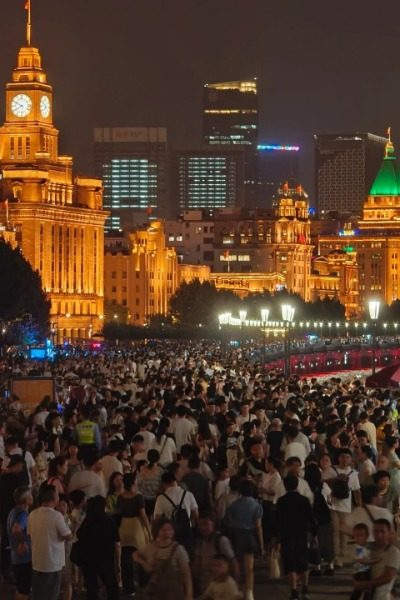
Seasonal and Weather Guide for Popular Tourist Cities in China (Best Travel Times)
- Beijing Weather Guide
- Shanghai Weather Guide
- Xi’an Weather Guide
- Chongqing Weather Guide
- Chengdu Weather Guide
- Zhangjiajie Weather Guide

